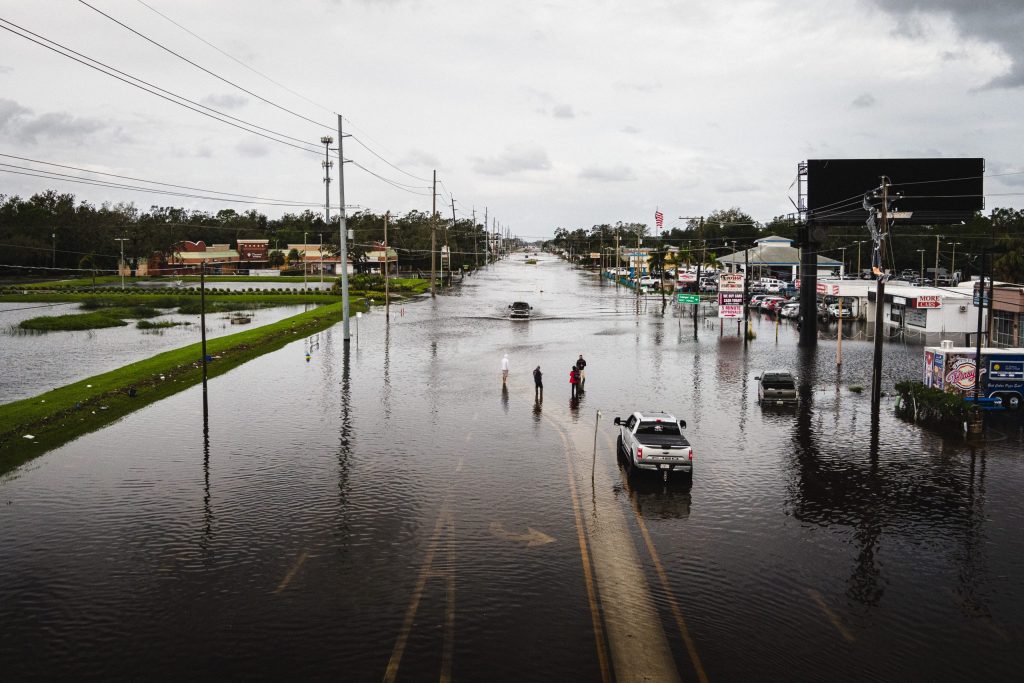Navigating the Emotional Impact of Hurricanes Helene and Milton

We’ll just say it, it’s been an incredibly hard Fall for Tampa Bay. With our community experiencing the back-to-back challenges of Helene and Milton, each and every Floridian has felt the impact of this hurricane season. So much has been lost, whether you experienced that loss directly or are witnessing its impact on your loved ones and neighbors. While the physical recovery from storms tends to start right away, repair of our mental health and well-being can take longer and is often left out of the conversation.
Facing a single storm brings the dual stresses of vigilance and preparation, but this year’s storms felt different. From sitting in anticipatory stress about yourself, those you care about, your home, and your community to navigating post-storm loss and damage, it has been a lot to handle. However you are feeling: grief, anger, overwhelm, or some combination of these and other emotions, know that it’s completely normal and a valid response to what our community is going through right now.
You’re not alone and you don’t have to do this alone, there is support available. If you or a loved one needs emotional or tangible support after the storms, here is our list of curated resources and tips to support your mental health through disaster:
Seeking help when you need it
If the stress and anxiety are too overwhelming to manage on your own, it’s important to seek additional support. Here are some resources that may be helpful:
- SAMHSA Disaster Distress Helpline: If you’re in distress or need immediate support, call or text 1-800-985-5990 for 24/7 crisis counseling.
- Mental Health America Crisis Resources: Access here for a comprehensive list of support services.
- FEMA Recovering From Disaster Guide: A quick-reference pdf with practical tips for personal safety, property recovery, emotional coping, and how to get involved. If you are supporting children, there is a thorough, age-appropriate guide on how to do so.
- APA Guide to Recovering Emotionally from Disaster: Read here for support in normalizing your feelings and simple practices to help support yourself and move forward.
- CDC Disaster Coping Portal: Visit here for advice on managing disaster-related stress. This page also has excellent toolkits for children, teens, and first responders.
- Ready.gov Disaster Recovery Resources: Learn more about steps you can take as you return home and rebuild, and visit here for information on how to recognize and support yourself and your loved ones through disaster-related stress.
- Tampa Bay Thrives has gathered helpful resources to support your mental health post-disaster. We will continue to update this list as more support becomes available. You can view the current resources here.
- Find More Resources: Tampa Bay Thrives has gathered helpful resources to support your mental health post-disaster. We will continue to update this list as more support becomes available. You can view the current resources here.
Some things to remember
In the aftermath of a disaster, emotional recovery is just as important as physical recovery. An important first step can be acknowledging that it’s okay not to be okay, and knowing that you’re not alone. Here are some gentle reminders as you move through this challenging time:
- It’s okay to talk about your emotions. Hard feelings like overwhelm, grief, stress, and anger are normal, but discussing your feelings—whether with a friend, family member, or mental health professional—can be a powerful step toward healing.
- Caring for yourself is important… While it may seem like there’s too much to do to pause for self-care, hurricane recovery is a marathon and not a sprint. It’s important to prioritize time for rest and activities that support your well-being.
- …So is supporting your physical health. Stay hydrated and well-fed, sleep when you’re able, and take breaks regularly, especially if you’re engaging in physically taxing recovery tasks.
- Limit exposure to stressors. It’s important to stay informed, but continuous news monitoring or social media scrolling can exacerbate anxiety. Set limits on how much disaster coverage you consume.
- Don’t isolate. Natural disasters can bring many negative impacts, but they can also create conditions where neighbors show up for each other, showing us the deep power of community. Reach out to your local community, and tap into existing networks (schools, faith communities, etc) to see how you can get involved or simply stay connected.
In the coming weeks, as our community rebuilds physically, it’s essential to prioritize emotional healing as well. Whether you’ve lost a home, faced displacement, or are simply feeling the collective strain on our community, know that you are not alone. Tampa Bay and the state of Florida have a long history of resilience. We’re in this together and we get through this together. All of us on the Tampa Bay Thrives team are sending you our love and support.
Stay safe, and take care of yourselves.




